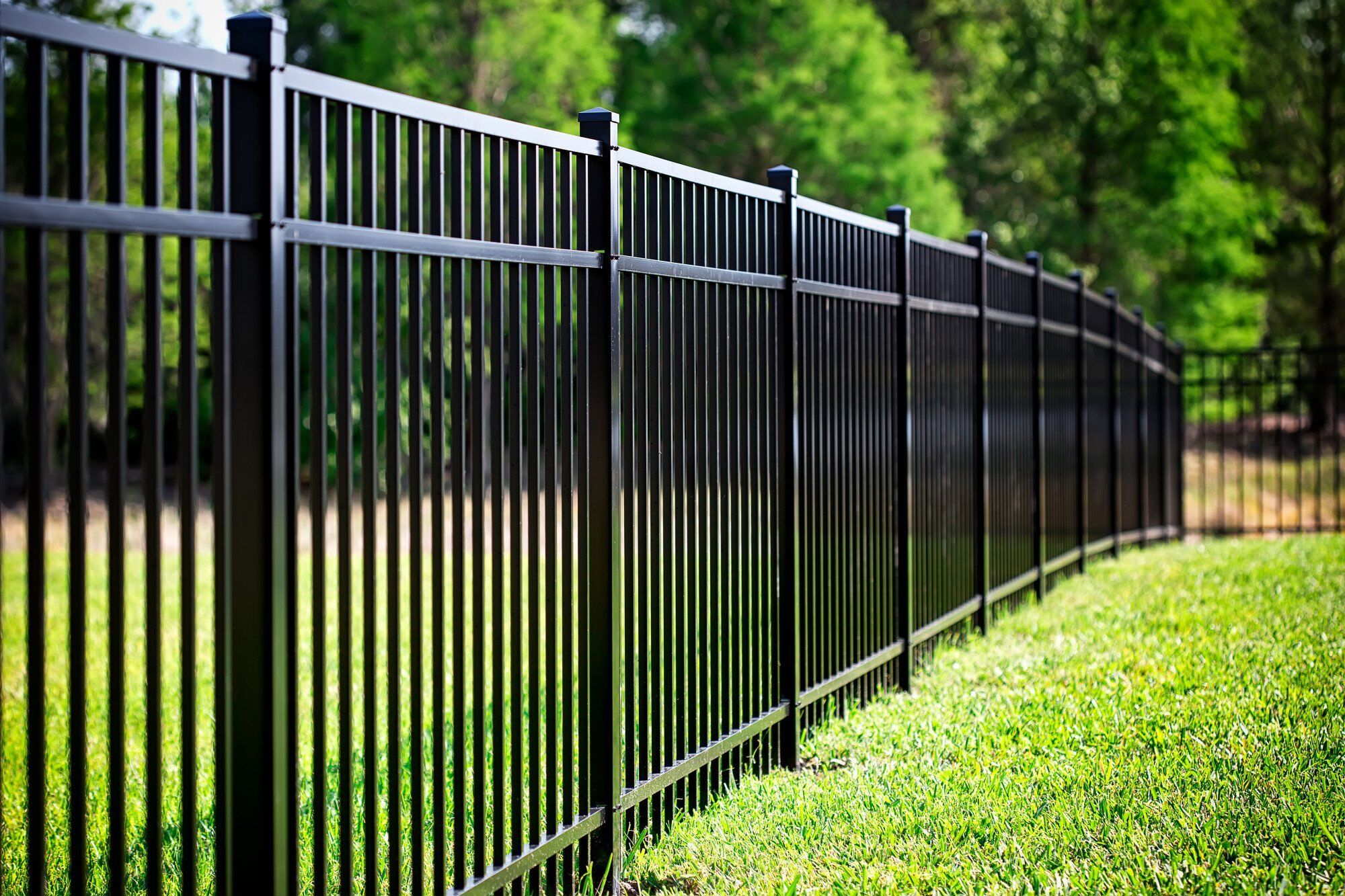All Categories
Featured

When setting up a fence, selecting the appropriate product is crucial to stabilizing functionality, visual appeals, and budget plan. Wood, plastic, and aluminum are amongst the most frequently chosen fence materials, each with its downsides and staminas. This overview explores the pros and disadvantages of these alternatives to aid you make an educated choice.

Timber Secure Fencing. Pros:. All-natural Beauty: Timber's classic appeal can enhance any home with its classic and cozy appearance. Adjustable: You can paint, tarnish, or sculpt timber to fit your style choices. Inexpensive: Wood fence is at first extra budget-friendly contrasted to some other materials. Ecologically Friendly: As a renewable resource, wood is naturally degradable and typically thought about environmentally friendly. Disadvantages:. Maintenance-Intensive: Regular securing, paint, or staining is required to avoid damages from weather and parasites. Prone to Decay: Without correct care, wood can rot, warp, or fracture with time. Shorter Life-span: On average, timber fencings last 10-15 years, depending upon the kind of wood and upkeep. Timber is an excellent choice for those that value visual appeals and want to purchase regular maintenance to maintain its look and toughness.
Plastic Fencing. Pros:. Low Maintenance: Vinyl calls for marginal treatment-- just occasional cleaning with soap and water. Climate Resistant: It doesn't warp, rot, or give in to insect damages, making it very sturdy in different environments. Longevity: Plastic fencings can last 20-30 years with little to no repair services. Layout Range: Available in a large range of shades, structures, and styles, consisting of wood-like looks. Cons:. Higher Initial Price: Plastic fencings are a lot more pricey in advance compared to wood. Susceptability to Cold: In exceptionally chilly weather, vinyl can become fragile and vulnerable to fracturing. Limited Repair Work Options: Matching replacement panels can be challenging if damage occurs. Vinyl secure fencing is suitable for property owners trying to find a long-lasting, low-maintenance service that supplies modern adaptability.

Aluminum Secure Fencing. Pros:. Rust-Proof: Aluminum stands up to rust, making it an outstanding selection for damp or wet settings. Durable: In spite of being light-weight, aluminum is solid and can withstand rough climate condition. Reduced Maintenance: It needs very little maintenance, typically only periodic cleansing. Long Lifespan: Light weight aluminum fences can last decades without substantial degeneration. Elegant Style: Frequently used for decorative purposes, light weight aluminum secure fencing adds a smooth, innovative aim to homes. Disadvantages:. High Preliminary Investment: Light weight aluminum fences are among the costlier options on the marketplace. Less Personal privacy: The open styles common with aluminum fence do not give much privacy. Prone to Damages: While long lasting, light weight aluminum can damage if struck with sufficient pressure. Aluminum is a superb choice for home owners focusing on aesthetic appeals and sturdiness without needing much maintenance.
Making Your Choice. When making a decision between timber, light weight aluminum, or plastic secure fencing, consider your concerns:
Wood matches those that value an all-natural look and do not mind placing in upkeep initiative. Plastic is the very best alternative for those seeking a low-maintenance, weather-resistant solution. Light weight aluminum uses smooth design and resilient toughness but might do not have privacy. By very carefully examining these materials' functions, you can choose a fence that enhances your home while fulfilling your aesthetic and functional demands.
Latest Posts
Your Trusted Partner in Bathroom Transformations
Published Jan 19, 25
0 min read
Exist Funding Options Available for Huge Fencing Jobs?
Published Jan 19, 25
0 min read
Necessary Ideal Practices for Caring for Contact Lenses
Published Jan 18, 25
0 min read